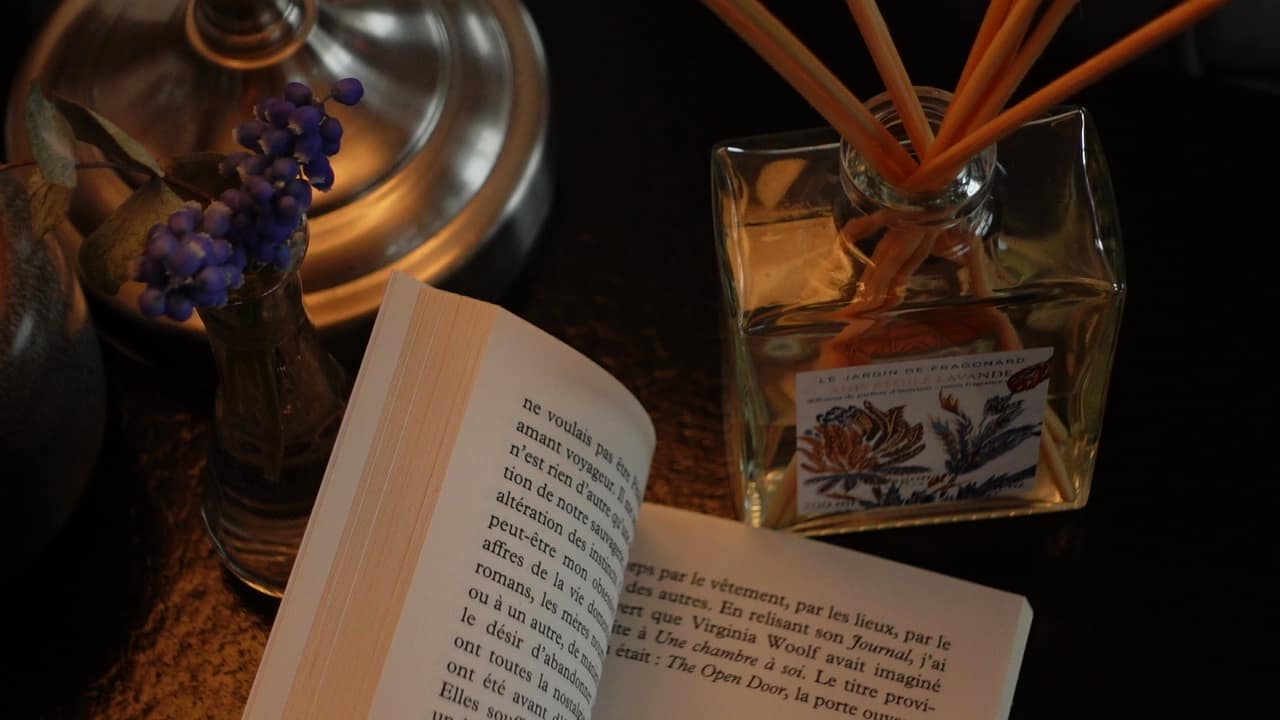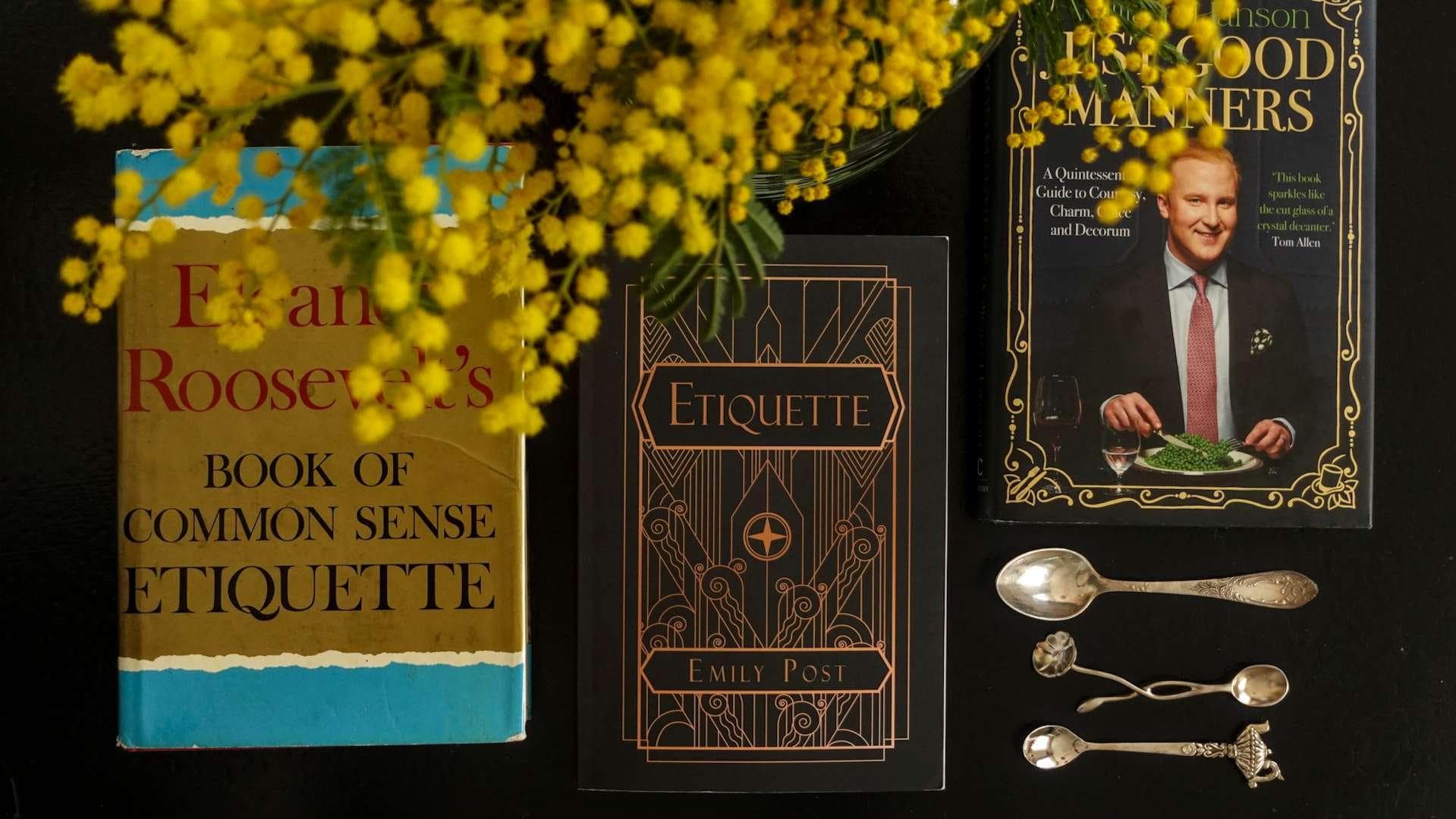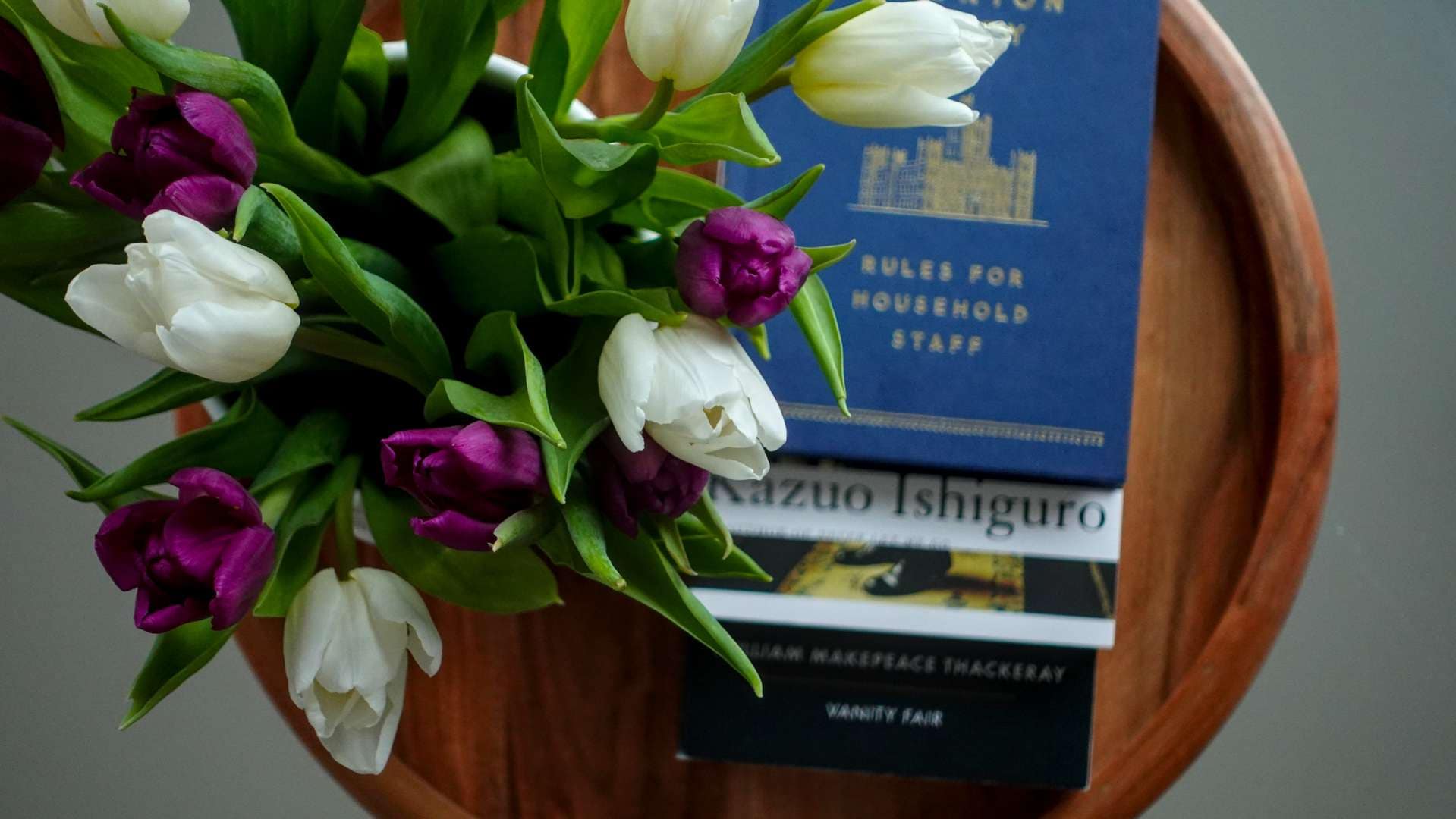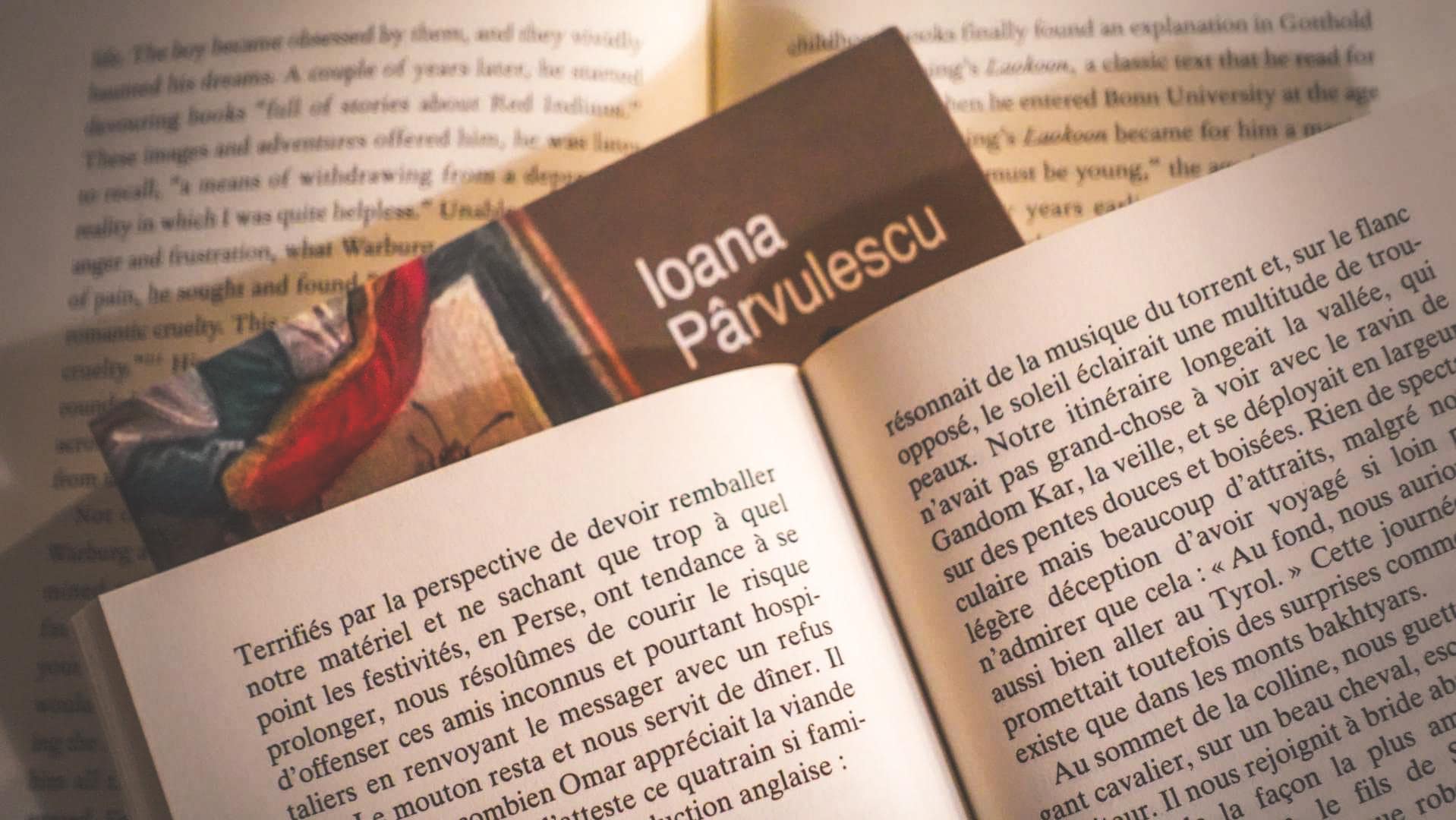Hello friends ! I’m very happy to be back in 2024 for our next chapter of cosy reading together !
My little break from filming, right after the adventures of my yearly Advent Calendar series, has meant time to reflect. I love the sprint that is my December schedule, since it means discovering new authors and cultures, a bit of travelling and lots of creative endeavours. Yet, the excitement needs some balance, so I’m starting the year with the intention of “coming back home”. Here’s what that means for me…
Firstly, it’s a very literal coming back home. Travelling less and enjoying the comfort of my interior is my first step into well-being. January and February are still winter months in my book, so a little hibernating and replenishing my energy levels in preparation for Spring is a must for me. It’s also the perfect moment to bust out the Christmas gifts.
I love my new pillowcases that set the intention for me every night. Sewing flowers and harvesting dreams is such a lovely motto for this year, as is the simplest of house cleaning gestures, like opening up a new fancy soap for the bathroom, or setting up a brand new perfume diffuser. There are days when taking care of my home means scrubbing and vacuuming, loads of laundry or cleaning the kitchen cabinets. And other days, I can only muster the energy of changing the bar of soap. Nevertheless, the joy that this brings is infinitely more important than a picture perfect house.
Home also means my modest yet mighty little balcony garden. Some things need tending right away… others are the fruit of my late autumn endeavours, like this bulb lasagna that is just ready to burst with hyacinths, daffodils and tulips. By this time, my excitement levels for the new gardening season are through the roof. And this year, I’m taking inspiration from two lovely gardeners and writers.
Sarah Raven’s podcast is a favourite ritual of mine when leaving the office at night. Listening to her on my commute is the perfect symbol of closing the work window, and opening up the leisure part of my day. You can imagine my excitement when I stumbled upon one of her first books in its French translation : The Cutting Garden: Growing and Arranging Garden Flowers. From organising your garden patch to choosing the right flowers that have a good vase lifespan and then ideas for floral arrangements, this is a delight for any gardener. I’ve been browsing through it for a few days now, I feel the inspiration levels rising. Between my annual seeds collected last year and a few new additions ready to be delivered, the flower season is upon us !
My second gardening book that I’m about to finish as I film, is Katherine Swift’s bestselling memoir The Morville Hours. I’ve seen this praised on so many BookTube channels, it was only a question of when. And this late winter was the moment.
Katherine Swift moved into the Dower House at Morville in 1988, with the ambitious project of creating a garden of her own. Yet, with her experience as a rare book librarian and researcher, she was not going to tackle this like any other gardener would. Researching the history of the property and of its many owners, strengthening her knowledge of endemic species or of historical landscaping, and ultimately documenting with deep honesty her journey as a person and as a gardener throughout the seasons, she ended up writing a truly remarkable book. Not to mention my absolute delight in her choice of structuring her opus as a medieval Book of Hours. You can take each aspect of it apart and find it enriching. Or, you can look at the whole and realise what a valuable lesson the book gives in living with intention.
Necessary things for human life : fire, food, shelter (a home). Necessary things for plant life : earth, water, air (light). Necessary things for human growth : myth, legend, stories (history).
Katherine Swift – “The Morville Hours”
One of my reading intentions this year, somewhat in line with this reading my way back home theme, is dedicating more of my time to French authors. I find that the diversity of my reads has somewhat pushed me away from what I considered to be familiar, thus less exciting, towards the exotic unknown of lands I only dream of.
So I’ve started small, two essays with very different subjects.
Sylvain Tesson has been at the heart of a controversy these past few weeks here in France, but I’m not here to talk politics. What you already know from last year’s January video is that I love his writing. And this time, I chose one of his older essays Sur les chemins noirs, translated into English as On the wandering paths.
After travelling the world and documenting it, Tesson fell from a rooftop after a night of heavy drinking. His miraculous recovery was the sign he needed, not only to address his drinking problem, but also to explore the one part of the world he ignored the most : his own country. He decided to travel across France by foot in a diagonal from the Italian border, up to the coasts of Brittany, following the ancient peasant roads from old maps. This is an essay of introspection and an ode to the beauty of the country side. His views might appear radical at times, as he professes his love of the authentic, be it in people or in landscapes. And while I am slightly less inclined to idealise an off-grid life, I loved the time spent reading about his reconnection to a land and a soul he had forgotten.
My second French book has brought me back to a series I spoke of almost two years ago : the Night at the Museum collection from Stock publishing house. My first read from the series was Jakuta Alikavazovic’s night at the Louvre, I’ll leave a link to it in the description box.
I chose to follow it with bestselling author and Goncourt prize winner, Leila Slimani’s experience, spending a night at the Punta della Dogana Museum, in Venice. Le parfum des fleurs la nuit was translated into English in 2021, as The Scent of Flowers at Night, and is an intimate testimony of what the life of a writer can be. I went in expecting an essay about art and museums, and I found the honest confession of a writer who feels intimidated by museums. The approach that Leila Slimani took to this unusual experience of nocturnal solitude in a place that holds centuries of history through its walls, and contemporary art through its exhibits, was surprising yet fascinating. Instead of art, it spoke of her, of doubt and vulnerability, of life’s contradictions and our victory in surpassing them.
Sometimes I tell myself that if I were to speak to no one, if I were to keep my thoughts all to myself, they wouldn’t seem so trivial as they do when I share them with others. Conversation is the enemy of a writer. We should keep our peace, take refuge in a profound and stubborn silence. If I were to become completely mute, I would be able to cultivate metaphors and poetic momentum like others grow flowers in greenhouses. If I were to become a hermit, I could see things that mundane life prevents me from seeing, I would hear sounds that daily life and the voices of others cover up. It feels that living in this world, our secrets get divulged, our inner treasures become dull, as if we were breaking something that, if kept secret, could make for a great novel.
Leila Slimani – “The perfume of flowers at night”
Reading my way back home also means reading Romanian authors. This is not something I often speak of here, since not many of them are translated into English or French. Still, I had to mention a novel inspired from true events, that has been breathtaking. Tatiana Niculescu is a Romanian contemporary author that you’ve heard me speak of before, in my video dedicated to Romanian author Mihail Sebastian. Her latest novel, called The Englishman at the North Station, tells the story of Brian Spencer, a real life Englishman who, at the age of 81, just days after the beginning of the war in Ukraine, went as a volunteer, to help the Ukrainian army in any way possible. Tatiana Niculescu met him on the train platform at the North Station in Bucharest, as he was travelling to the Ukrainian border. In a life story spanning from his own father’s death in World War II, to his own military career as a Royal Air Force pilot in the Balkan wars, the book refreshes our memories of major historical events. However, the human values it speaks of are the most valuable aspect of the book. Self-sacrifice, moral integrity, the faith that there is more good in the world than evil, this is a book to remind us that all of our gestures can make an impact in the world. I hope it will be translated one day, and in the meantime, I recommend it for those who can read it.
Days spent at home have a different charm to them when I take the time to bake. With all the winter spices behind me, I am leaping into my Spring favourites, as an incantation ritual to bring light and colour back. During the lockdown period, I discovered one of the most inspirational channels here on YouTube, Kylie Flavell. And I believe it was in the very first video I saw of her, that she baked her version of a traditional Tuscan lemon ricotta cake. This has become a Spring favourite, that I’ve been making ever since, a ray of sunshine for my five o’clock tea. I’ll link her video in the description box, and her website for the full recipe.
The last chapter of my “reading my way back home” journey has been dedicated to British charm. This is a vibration home for me, I’ve never lived there, and only visited once, yet there are authors and atmospheres that invariably conjure up a cosy, comfortable vibe that I recognise as my own.
Golden Age mysteries are of course, on the top of my list, and I’ve treated myself with a discovery. Georgette Heyer is considered a classic, yet you would be surprised how little interest translators have shown when it comes to her works. I read in four languages besides English, and yet, I’ve only found out about her a few years ago. I’ve begun with one of her least famous mysteries, though I couldn’t tell you why, since I personally had a lovely time reading it : Why Shoot a Butler ? This has been a light hearted, well written novel, the type of page turner you wish for when you’re in a reading slump, or when you turn to books for a change of scenery (aka reading therapy, I’m a big fan). The plot is simple yet effective, the characters gather up all that I love in English country charm, and as for who did it, I had no suspicions up to the big reveal. So this was a winner for me !
And lastly, I’ve continued my dive into the Cazalet family saga, with Elizabeth Jane Howard’s second novel of the series, Marking Time. I love it when I manage to pace myself and not binge read a saga in three weeks. It’s been almost a year since I read the first one, so I did good. The same elegance in the writing that I so enjoyed in the first one, as well as a deeper profiling of the characters since the children have become teenagers and young adults, with the right amount of tension brought on by the war in the background. I’m still a fan, and can’t wait to get to the third book, but not too soon !
This has been an overview of my reading mood at the start of the year. But there are changes in the air : the days are starting to get longer, the temperatures are rising, I predict a change in mood until our next encounter. I hope your reading is going well, I hope your books bring you comfort and joy, and that your daily rituals are inspired by all that you encounter.
Until next time, enjoy your reading and your rituals !





